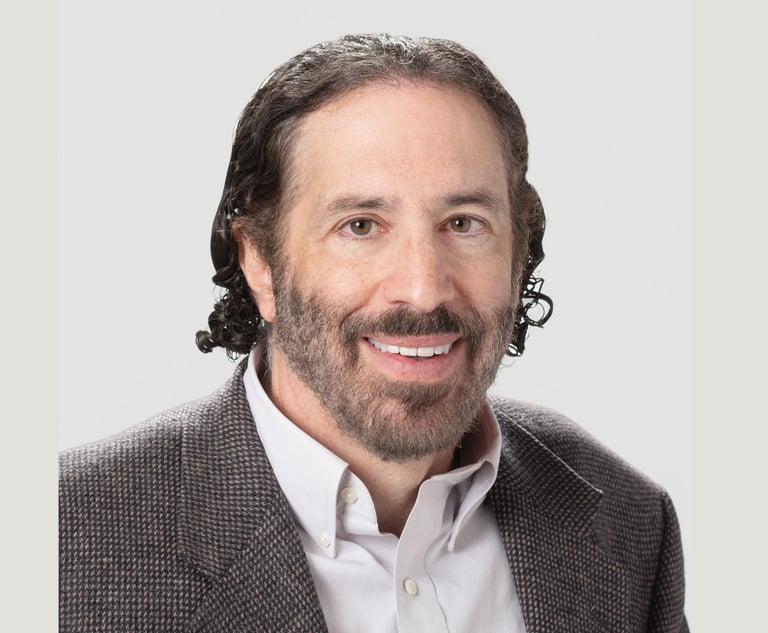Cybersecurity, Insurance Stacking Among Pittsburgh Argument Highlights
The court is scheduled to hear arguments April 10 and April 11.
April 05, 2018 at 01:37 PM
10 minute read
 Pittsburgh skyline. Photo by ESB Professional/shutterstock
Pittsburgh skyline. Photo by ESB Professional/shutterstock Over the course of two days in Pittsburgh, the Pennsylvania Supreme Court is set to hear arguments on a host of complex issues, including liability for data breaches, attorney-client privilege in derivative actions, stacking motor vehicle insurance coverage, waiver of issues on appeal and the scope of Act 13's impact fee exemption for oil and gas drillers.
The court is scheduled to hear arguments April 10 and April 11.
Data Breach Liability
Arguably the most controversial lower court ruling the Supreme Court is set to review during this session is the Superior Court's January 2017 decision in Dittman v. UPMC, in which arguments are scheduled for April 10.
In an apparent case of first impression, a divided three-judge panel ruled Jan. 12 that UPMC could not be held liable in a suit brought by several employees who were victims of identity theft after their electronically stored employment information—including dates of birth, addresses and Social Security numbers—was stolen from the health care provider's servers. The ruling affirmed a decision from the Allegheny County Court of Common Pleas, which had tossed the proposed class action suit that had alleged negligence and breach of implied contract.
Judge Judith Ference Olson, who wrote the Superior Court's majority opinion, weighed the social utility of UPMC's use of electronic storage against the risk and foreseeability of being hacked, and determined that the court should not impose a duty on the health care company.
“In the modern era, more and more information is stored electronically and the days of keeping documents in file cabinets are long gone. Without a doubt, employees and consumers alike derive substantial benefits from efficiencies resulting from the transfer and storage of electronic data,” Olson said. “Although breaches of electronically stored data are a potential risk, this generalized risk does not outweigh the social utility of maintaining electronically stored information.”
According to court papers, the company was hacked in 2014 and the financial information, including tax and bank information, from its nearly 62,000 employees was accessed. Almost 800 employees were later the victims of tax fraud.
Senior Judge John L. Musmanno dissented, calling the majority's holding “untenable, given the ubiquitous nature of electronic data storage.” Judge Victor Stabile wrote a concurring opinion, which Olson joined, saying that the decision “should stand for no more than the conclusion that a legal duty was not found to exist under the facts pled in this case.”
“In this constantly developing area of law and technology we must proceed to establish precedent slowly and with caution,” Stabile said.
The ruling surprised a number of cybersecurity lawyers, who said it appeared to create a nearly insurmountable hurdle for plaintiffs in Pennsylvania state court and was out of step with several other courts that have tackled similar issues.
According to the Supreme Court's Sept. 12 allocatur order, the justices will hear arguments on whether UPMC had a duty to safeguard its employees' electronic information and whether the economic loss doctrine prohibits recovery of pecuniary damages.
Stacking Coverage
Also on April 10, the justices are scheduled to hear arguments in Gallagher v. Geico Indemnity, examining the interplay between household vehicle exclusions limiting insurance stacking and the state's Motor Vehicle Financial Responsibility Law. The case should give the justices a chance to revisit a topic the high court has split on twice in the past 10 years.
On Aug. 8, the justices granted allocatur in the case to address whether it is a violation of the MVFRL if a household vehicle exclusion limits stacking even when the insured paid for and did not expressly waive the option to stack the policy.
According to the state Superior Court's January decision in Gallagher, in two split decisions the Supreme Court affirmed rulings that had determined similar policy language limiting stacking did not violate the MVFRL. One of those cases, Government Employees Insurance v. Ayers, came before the justices in 2011, while the other case, Erie Insurance Exchange v. Baker, came before the Supreme Court in 2009.
In Gallagher, according to Superior Court Judge H. Geoffrey Moulton, who wrote the intermediate court's decision in the case, plaintiff Brian Gallagher bought stacked coverage on two Geico insurance policies—one for his motorcycle and the other for his two automobiles.
He was involved in a motorcycle accident in August 2012, and, after paying $50,000 in underinsured motorist coverage, Geico denied Gallagher's claim for additional coverage under the automobile policy. Geico cited the household vehicle exclusion in that policy, which said the coverage did “not apply to bodily injury while occupying or from being struck by a vehicle owned or leased by you or a relative that is not insured for [UIM] coverage under the policy.”
The trial court granted summary judgment to Geico, finding that Ayers was controlling, Moulton said.
In ruling on Gallagher's case, Moulton said the Superior Court was bound by the prior rulings, but he noted the closely contested outcomes.
“Given the significance of this legal issue and the divided nature of the Supreme Court in both Ayers and Baker, Gallagher may wish to petition the Pennsylvania Supreme Court for allowance of appeal,” Moulton said.
Waiver of Issues on Appeal
April 10 will also see the justices hear argument over the axing of a $1.8 million verdict awarded to a man who was shot outside of a Pittsburgh convenience store.
In Stapas v. Giant Eagle, the justices granted allocatur to plaintiff John Stapas, who was disabled as a result of the shooting, but denied another allocatur petition filed by the defendant, Giant Eagle, corporate owner of the GetGo convenience store chain.
Allocatur was granted to the plaintiff on two questions:
First, “does the Superior Court's decision to reverse the trial court's finding of waiver, despite Giant Eagle's failure to object to flawed jury instructions, flawed verdict slip and/or the problematic verdict, all of which contributed to the error complained of on appeal, conflict with this court's holding in Straub v. Cherne Industries … a case not considered by the Superior Court?”
And second, “does the Superior Court's decision to excuse Giant Eagle's failures to object to flawed jury instructions, flawed verdict slip and/or a problematic verdict, merely because the appeal is styled as a 'challenge to the weight of the evidence,' conflict with the timely objection requirement of Dilliplaine v. Lehigh Valley Trust?”
Stapas was shot in front of the GetGo on 117 S. 18th St. on July 18, 2007, after an altercation with another shopper, Brandon McCallister, according to court documents. Stapas sued Giant Eagle for negligence, and on Nov. 17, 2014, an Allegheny County jury found Giant Eagle 73 percent negligent and Stapas 27 percent negligent, awarding him roughly $2.1 million.
The trial judge molded the verdict to take into account Stapas' negligence and added delay damages, reaching a final total of $1.8 million. But while the state Superior Court later upheld the jury's negligence findings, it reversed and vacated the monetary portion of the verdict and remanded for a new trial on damages.
Attorney-Client Privilege
On April 11, the high court has agreed to hear arguments in a case about the complex attorney-client privilege issues that can arise during derivative actions involving nonprofit corporations and special investigating committees.
The justices issued a three-page per curiam order agreeing to hear arguments on four questions raised in the case Pittsburgh History and Landmarks Foundation v. Ziegler. Two of the questions were posed by the defendants in the case, while the other two were posed by the plaintiffs.
Specifically, the justices agreed to hear arguments on whether the attorney-client privilege standards outlined in the Restatement (Third) of Law Governing Lawyers and the U.S. Court of Appeals for the Fifth Circuit's 1970 ruling in Garner v. Wolfinbarger conflict with state law, and about how the fiduciary duty and common-interest exceptions play into derivative actions involving a special investigative committee.
The appeal arose after an en banc Commonwealth Court panel in April determined that the trial court handling the underlying derivative action issued an improperly broad discovery order. As part of that decision, the Commonwealth Court said the lower court should not have applied the fiduciary duty or common-interest exceptions to the case, but should have looked for potential exceptions to the privilege based on Garner.
Impact Fee Exemption
The justices on Wednesday are also set to weigh in with their interpretation of the word “any” in the statutory definition of “stripper well”—a decision that could be bound to hit either the shale industry or the Pennsylvania Utility Commission in the wallet depending on which way it goes.
The high court granted allocatur last October in Snyder Brothers v. Public Utility Commission, agreeing to review a March 2017 ruling by a split en banc Commonwealth Court panel that an unconventional gas well that produces fewer than 90,000 cubic feet of gas per day during one month of a calendar year is not subject to impact fees.
Act 13 defines a “stripper well” as an “unconventional gas well incapable of producing more than 90,000 cubic feet [cf] of gas per day during any calendar month.”
The panel had found that the General Assembly intended “any” to mean “one,” rather than “every,” when it said in Act 13 that a stripper well is one that falls below the threshold “during any calendar month.” Stripper wells, as opposed to “vertical gas wells,” are not required to pay impact fees. The case attracted the attention of the Pennsylvania Independent Oil and Gas Association, which was an intervenor on behalf of Snyder Brothers Inc.
In its two-page order granting allocatur, the Supreme Court agreed to take up the following issues, as stated on appeal by the PUC: “(1) On a question of first impression involving substantial public interest, did the Commonwealth Court err in finding that the definition of 'stripper well' in the Unconventional Gas Well Impact Fee Act of 2012 (Act 13), was clear and unambiguous? (2) Is the Commonwealth Court's opinion based on factual and legal errors and is it a significant departure from accepted judicial practices? a. Did the Commonwealth Court err in its statutory construction analysis, misreading the definition of 'stripper well' in Act 13, ignoring relevant legislative history, and ultimately reaching a conclusion that is an absurd result? b. Where the commission is charged with the administration and enforcement of the impact fee provisions of Act 13, did the Commonwealth Court err in failing to give deference to the commission's interpretation of Act 13?”
This content has been archived. It is available through our partners, LexisNexis® and Bloomberg Law.
To view this content, please continue to their sites.
Not a Lexis Subscriber?
Subscribe Now
Not a Bloomberg Law Subscriber?
Subscribe Now
NOT FOR REPRINT
© 2025 ALM Global, LLC, All Rights Reserved. Request academic re-use from www.copyright.com. All other uses, submit a request to [email protected]. For more information visit Asset & Logo Licensing.
You Might Like
View All
Lackawanna County Lawyer Fails to Shake Legal Mal Claims Over Sex With Client
3 minute read
Pa. Superior Court Rules Pizza Chain Liable for Franchisee Driver's Crash
4 minute read
Patent Pending ... and Pending ... and Pending? Brace Yourself for Longer Waits
3 minute read
Boosting Litigation and Employee Benefits Practices, Two Am Law 100 Firms Grow in Pittsburgh
3 minute readTrending Stories
- 1Judge Pauses Deadline for Federal Workers to Accept Trump Resignation Offer
- 2DeepSeek Isn’t Yet Impacting Legal Tech Development. But That Could Soon Change.
- 3'Landmark' New York Commission Set to Study Overburdened, Under-Resourced Family Courts
- 4Wave of Commercial Real Estate Refinance Could Drown Property Owners
- 5Redeveloping Real Estate After Natural Disasters: Challenges, Strategies and Opportunities
Who Got The Work
J. Brugh Lower of Gibbons has entered an appearance for industrial equipment supplier Devco Corporation in a pending trademark infringement lawsuit. The suit, accusing the defendant of selling knock-off Graco products, was filed Dec. 18 in New Jersey District Court by Rivkin Radler on behalf of Graco Inc. and Graco Minnesota. The case, assigned to U.S. District Judge Zahid N. Quraishi, is 3:24-cv-11294, Graco Inc. et al v. Devco Corporation.
Who Got The Work
Rebecca Maller-Stein and Kent A. Yalowitz of Arnold & Porter Kaye Scholer have entered their appearances for Hanaco Venture Capital and its executives, Lior Prosor and David Frankel, in a pending securities lawsuit. The action, filed on Dec. 24 in New York Southern District Court by Zell, Aron & Co. on behalf of Goldeneye Advisors, accuses the defendants of negligently and fraudulently managing the plaintiff's $1 million investment. The case, assigned to U.S. District Judge Vernon S. Broderick, is 1:24-cv-09918, Goldeneye Advisors, LLC v. Hanaco Venture Capital, Ltd. et al.
Who Got The Work
Attorneys from A&O Shearman has stepped in as defense counsel for Toronto-Dominion Bank and other defendants in a pending securities class action. The suit, filed Dec. 11 in New York Southern District Court by Bleichmar Fonti & Auld, accuses the defendants of concealing the bank's 'pervasive' deficiencies in regards to its compliance with the Bank Secrecy Act and the quality of its anti-money laundering controls. The case, assigned to U.S. District Judge Arun Subramanian, is 1:24-cv-09445, Gonzalez v. The Toronto-Dominion Bank et al.
Who Got The Work
Crown Castle International, a Pennsylvania company providing shared communications infrastructure, has turned to Luke D. Wolf of Gordon Rees Scully Mansukhani to fend off a pending breach-of-contract lawsuit. The court action, filed Nov. 25 in Michigan Eastern District Court by Hooper Hathaway PC on behalf of The Town Residences LLC, accuses Crown Castle of failing to transfer approximately $30,000 in utility payments from T-Mobile in breach of a roof-top lease and assignment agreement. The case, assigned to U.S. District Judge Susan K. Declercq, is 2:24-cv-13131, The Town Residences LLC v. T-Mobile US, Inc. et al.
Who Got The Work
Wilfred P. Coronato and Daniel M. Schwartz of McCarter & English have stepped in as defense counsel to Electrolux Home Products Inc. in a pending product liability lawsuit. The court action, filed Nov. 26 in New York Eastern District Court by Poulos Lopiccolo PC and Nagel Rice LLP on behalf of David Stern, alleges that the defendant's refrigerators’ drawers and shelving repeatedly break and fall apart within months after purchase. The case, assigned to U.S. District Judge Joan M. Azrack, is 2:24-cv-08204, Stern v. Electrolux Home Products, Inc.
Featured Firms
Law Offices of Gary Martin Hays & Associates, P.C.
(470) 294-1674
Law Offices of Mark E. Salomone
(857) 444-6468
Smith & Hassler
(713) 739-1250





